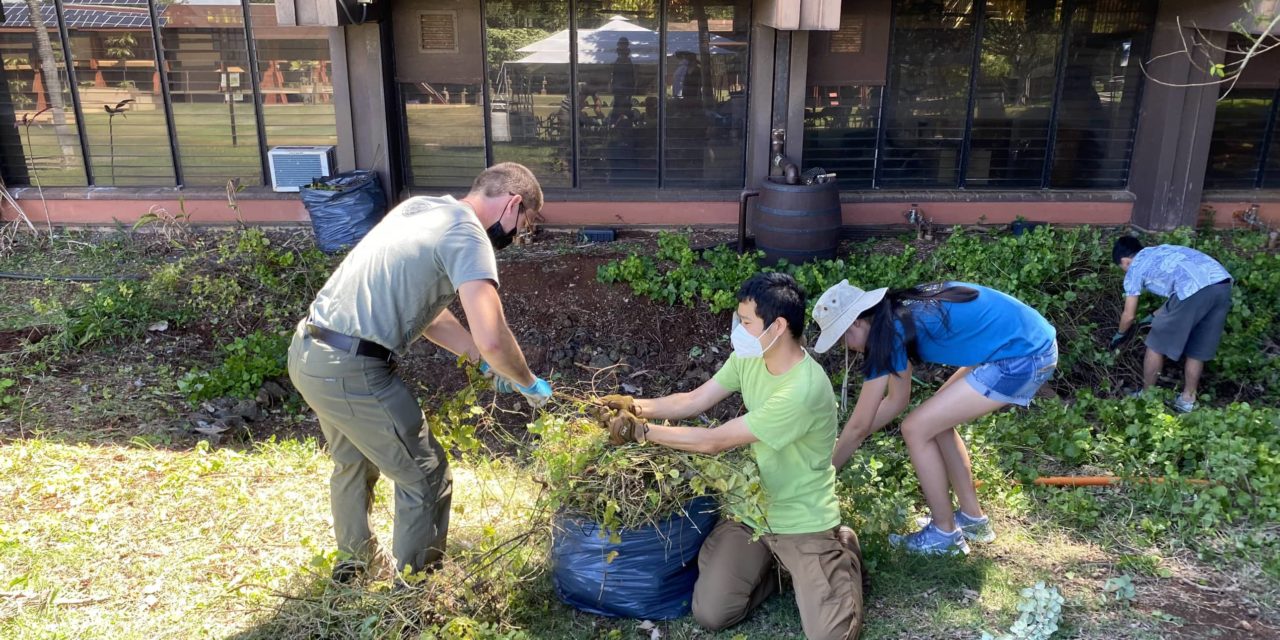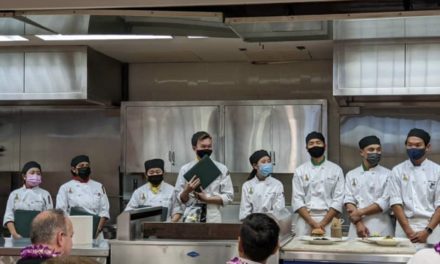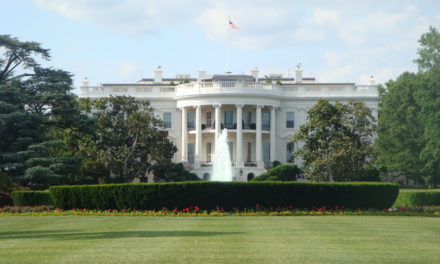Volunteers gather ‘Ilie’e trimmings during Saturday’s Rain Garden cleanup on the KCC campus. (Photo by Maria Pou)
By Maria Pou | Staff Writer
On Saturday afternoon the Phi Theta Kappa Honor Society partnered with Kapi‘olani Community College’s Ecology Club to clean up the campus Rain Garden. Nine volunteers congregated to care for native Hawaiian plants by trimming them and removing debris from the garden.
Sophia Daniel, the president of the Ecology Club, organized the event with the help of her fellow club officers. The second-year student has a passion for environmentalism and firmly believes that cleanups like the Rain Garden event positively impact society.
“This is important to not only just the KCC community but the community in Hawaii,” Daniel said. “Living species of plants and … mammals are important for our ecosystem, and without that, human beings cannot survive.”
Two indigenous plant species, ‘ilie’e and pōhinahina grow in and around the Rain Garden, which is located by the ‘Ilima building. Both are endemic, meaning that they arrived in Hawai‘i by natural means, on the wings of birds, the wind, or in ocean waves.
‘Ilie’e is a long-stemmed plant whose sap Hawaiians once applied to blacken tattoos. Pōhinahina was considered by Hawaiians to be a sacred plant and is named after the moon goddess, Hina. Today it is often sewn into head lei.
Though some of the event’s volunteers are natural science majors, other participants hold interests ranging from writing to forensics. Jenny Brown, a pre-engineering major and Student Congress president, found the cleanup to be therapeutic, calling the experience “physically taxing but also relaxing.”
“It feels fulfilling,” Brown said, “because, you know, you come out here after you’re stressed, and you feel like you’ve done something good for the environment and for the school.”
Participant James Lee was encouraged by the volunteer turnout. He agreed that it has been quiet around campus since most classes moved online when Covid started in March 2020.
Volunteer Lee Sawyer-Perez, a natural science major, believes that the Rain Garden cleanup accomplished even more than simply caring for the ʻāina.
“I think that one of the biggest things that this does is not only the actual service itself, but it really boosts the campus morale,” he said.
Sawyer-Perez volunteered to get involved on campus and connected with fellow students during a time when masks and social distancing standards make it hard for him to do so.
“It’s just a great environment,” he said. “This is my only in-person experience with the college, and it is nice to have my first and only one be related to what I love.”






